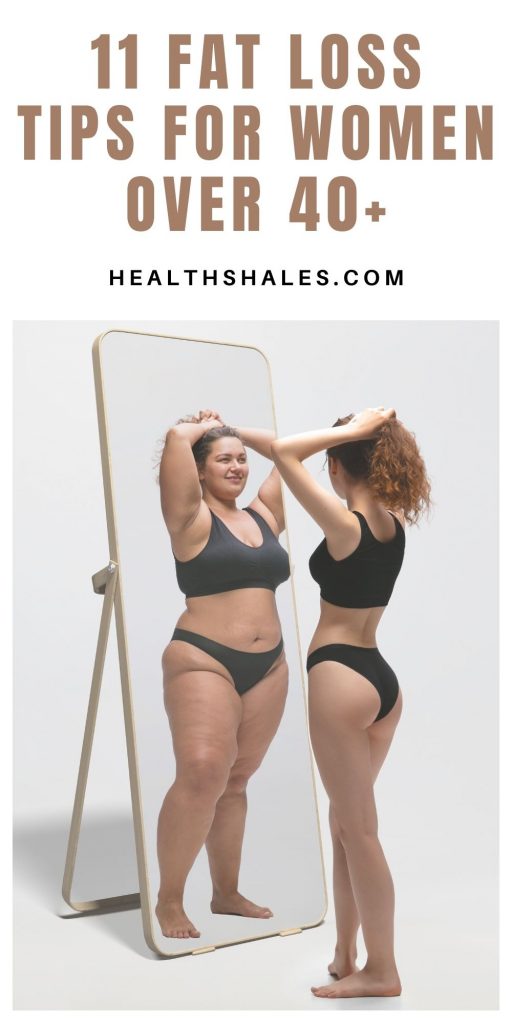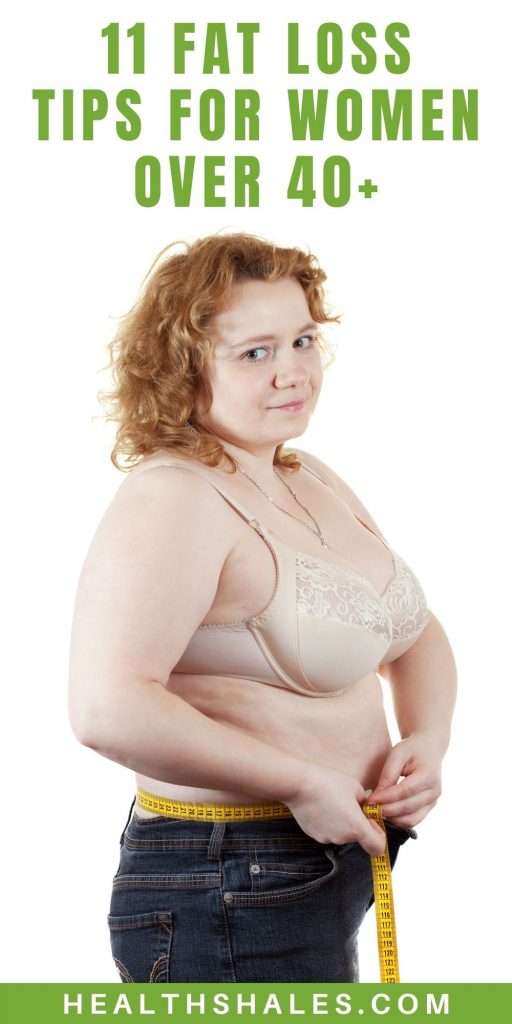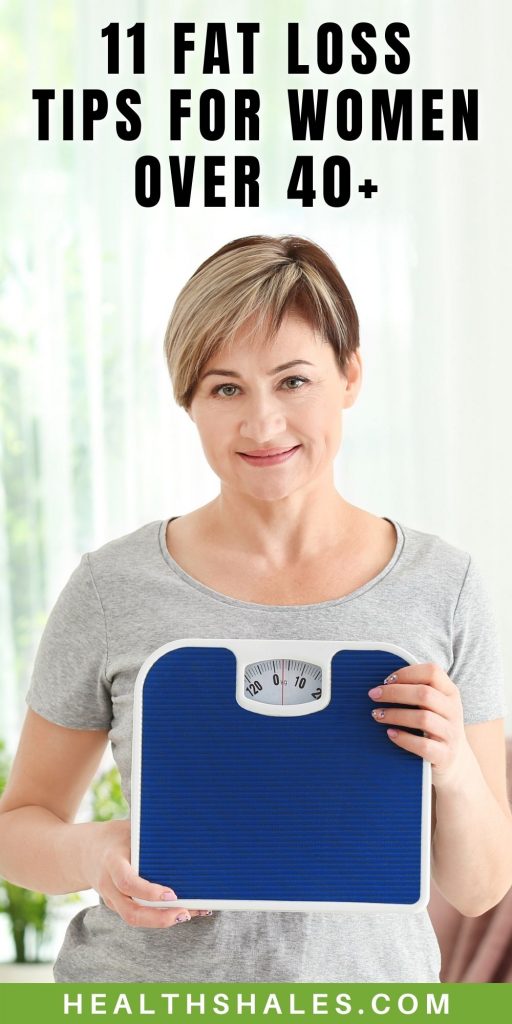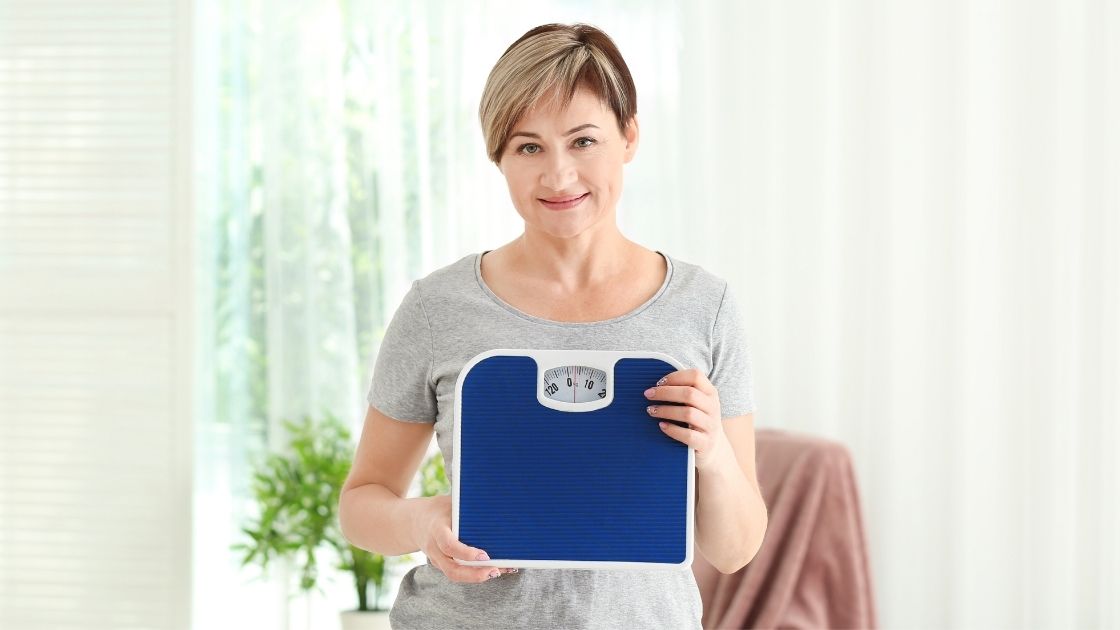Discover 11 expert tips to lose weight for women 40 years old and over.
Losing weight after 40 can be so frustrating. Around this age, your body has hormonal fluctuations that could increase fat storage. Your metabolic rate is also slow as a result of reduced muscle mass.
You may even realize that some of the weight loss techniques don’t work as they used to. But worry not! These expert-vetted fat loss tips will help you achieve your goals.
1. Eating breakfast is important

Several studies have sought the connection between skipping breakfast and weight loss. This particular research from Mayo Clinic found that people who tend to eat breakfast, burn more calories and weigh less.
Sharon Collison, a registered dietitian, advises on eating breakfast, “People who consume breakfast regularly often have increased physical activity. They have better dietary profiles and a lower intake of snacks”
She also says that a healthy breakfast should contain healthy fats, proteins, whole grains and fruits or vegetables. These will keep you satiated and will limit unnecessary snacking later.
2. You shouldn’t eat before bed (at least 3 hours before you sleep)
This usually depends on what you’re eating. Foods that are high in carbs or junk foods are calorie-dense. They end up building up in your body. Some of them take long to digest and are stored as fat.
Kelly Allison, a director of the Center for Weight and Eating Disorders, says that your metabolic rate slows down when you fall asleep. This means some of the foods you had consumed before bed are left undigested and stored as fat.
There’s been research that found that nighttime eating may cause weight gain. This is because it causes a lower fat oxidation rate. It also causes a higher carbohydrate oxidation rate which increases hunger.
3. Hydration matters
Being well hydrated allows your body to burn more calories by boosting metabolism. It’s also a natural appetite suppressant that keeps your cravings in check.
Water reduces calorie intake, as this particular study confirms. The study noted that water consumers have a much healthier dietary pattern.
Water also reduces fatigue and thereby prolonging your work-out time.
Sipping ice-cold water can also help you manage hot flashes that often come with menopause.
4. Keep your stress to a minimal
Stress can cause weight loss or weight gain depending on a person. This is due to the different approaches people use to deal with stress.
To some, stress can lead to increased appetite. This eventually leads to weight gain.
Chronic stress may also affect weight loss. This is due to the production of cortisol and betatrophin, stress-related hormones.
Li-Jun Yang, M.D., an assistant professor at the Department of Pathology, Immunology and Laboratory Medicine at the University of Florida says that betatrophin reduces the body’s ability to breakdown fat, linking chronic stress with weight gain.
Since stress is inevitable, these stress management techniques will help you relieve it.
5. You need your sleep
Lack of quality sleep affects weight loss. Studies have proven that being sleep-deprived increases appetite which may hinder weight loss.
The study notes that when you’re sleep-deprived Ghrelin hormones increases and Leptin reduces.
Ghrelin dictates when you should eat; it signals hunger to your brain more so when your stomach is empty. Leptin reduces hunger ratings and signals fullness to your brain.
When you have increased Ghrelin and reduced Leptin, you feel the desire the eat even when you’re not hungry. This could cause unhealthy eating habits which may affect weight loss.
Some factors like eating before bed affect sleep quality. According to Dr. Rajkumar Dasgupta,, a clinician and an assistant professor at Keck Medicine of USC, eating before bed could cause acid reflux or indigestion which may affect your sleep quality.

6. Tracking your calories helps
It’s way easier to lose weight when you track your calories as you’re able to make better food choices. You’re also able to eat foods that don’t exceed your caloric needs.
This study shows that participants who recorded what they ate lost more weight.
Here are some of the best calorie counting apps you can use.
7. Fruit and veggies are your friends
Fruits and Veggies are a must-have in your diet. They’re rich in water and fiber which are super filling. This allows you to limit food intake which in turn promotes weight loss. They also contain antioxidants that fight ageing and boost immunity.
Centers for Disease Control and Prevention has laid out a guideline on how you should consume fruits and vegetables for weight management.
8. Full-body strength exercise is effective
Perimenopause is common for women in their 40s. Estrogen levels tend to drop around this time.
A study conducted by the Women’s Health Research Institute, links reduced estrogen levels with lower metabolic rates and weight gain.
Doing full-body exercise that engages all your muscles is thus important during this period. It will prevent weight gain as well as boost your moods.
Related Posts:
- Yoga for Older Women & Seniors (12 Effective Poses)
- 5 Yoga Poses to Reduce Belly Fat (Weight Loss Asanas)
9. You should cleanse with detox recipes
Detox drinks can help you shed off excess weight. They aid in flushing out toxins from your body, improving digestive health.
Improved digestive health is a key factor for weight loss. As Dr. Ashutosh Gautam puts it, “In order to lose weight, one should have a good digestive health system”. By increasing digestive efficiency with a few dietary changes, one can lose weight and boost the body’s metabolism”
Related Post: Reveal our fat burning drinks that are essential for weight loss.
10. Avoid Sugary drinks, Alcohol and Fried Foods.
Studies have linked alcohol usage to increased risks of weight gain.
Sugary drinks like sodas have a lot of calories which may cause weight gain. The same case applies to fried foods.
A study published in the National Library of Medicine proves that consumption of sweetened drinks leads to weight gain. Hence should be avoided if you want to lose weight.
11. Consume more protein in your diet
Protein Increases fullness and satiety allowing you to eat less between meals.
This study proves that increased consumption of protein leads to increased appetite. This reduces cravings that may prompt you to grab something between meals
This other study indicates that protein prevents muscle mass loss which is prevalent in your 40s.
Related Posts:

Summary
Although it may seem difficult to lose weight at this age, it’s not impossible. The above tips will enable you to lose weight and keep fit. And if it takes longer or you don’t see changes, don’t beat yourself up about it. Keep motivated or hire a personal trainer or even see your doctor if need be.

